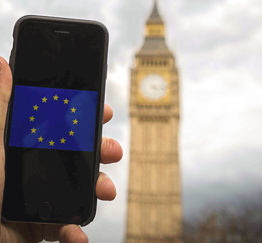On June 23, 2016, the United Kingdom voted to leave, or Brexit, the EU. It’s unlikely that the decision will go into effect right away—if it even happens given that its strongest political proponents have seemingly “brexited” their own cause.
However, if it does, it could affect many aspects of British and EU export controls and economic sanctions and, in turn, the relationship many U.S. businesses have with the nation.
At this time it’s still too early to speculate on what the exact consequences will be. Many hope that the UK will not want to disrupt agreements and processes already in place as doing so likely won’t sit well with their closest allies and trade partners—the U.S. among them.
Since Britain’s export controls fall under the Wassenaar Arrangement, which compels individual EU member states to implement their own controls, there may be little-to-no significant changes in this area. Where the situation becomes murky, however, is in regard to specific sanctions.
Are stricter sanctions on the horizon?
UN sanctions will continue to be enforced as the UK is a permanent member of the United Nations Security Council. However, certain European Union sanctions are incumbent upon individual member states to establish and enforce penalties. For example, the EU sanctions levied against Russia in regard to the situation in Ukraine.
The UK was a strong advocate for the recent extension of the EU’s sectoral sanctions against Russia, despite significant opposition from Russia and uncertainty among other EU countries. Without the UK’s advocacy, will the EU continue to extend the sanctions? The status becomes uncertain post Brexit and ultimately could have significant impact on U.S. companies operating in the region.
Brexit could lead the UK’s sanctions measures to more closely mirror Switzerland, which typically enacts sanctions similar to that of the EU, despite not being an EU member. Conversely, the UK’s House of Commons Foreign Affairs Committee has seemingly indicated that sanctions programs will become stricter, perhaps falling more in line with the U.S. Office of Foreign Assets Control (OFAC) sanctions, which are harsher than current EU legislative processes allow. Earlier this year, the Committee published a report stating that the UK would need to “re-assess its sanctions regimes…as it would no longer be bound by the EU’s collective rules.”[1]
The U.S. Treasury Department has so far taken a wait-and-see approach, with the United States Secretary of the Treasury, Jack Lew, issuing the following statement:
“The people of the United Kingdom have spoken and we respect their decision. We will work closely with both London and Brussels and our international partners to ensure continued economic stability, security, and prosperity in Europe and beyond.
“We continue to monitor developments in financial markets. I have been in regular contact in recent weeks with my counterparts and financial market participants in the UK, EU and globally and we are continuing to consult closely. The UK and other policymakers have the tools necessary to support financial stability, which is key to economic growth.”[2]
Brexit highlights the importance of a strong OFAC compliance program
U.S. businesses have long had to ensure they were aware of, and adhere to, OFAC sanctions as they relate to the U.K. and the EU. What Brexit has essentially done is remind us that economic and trade sanctions are constantly in flux. With all the uncertainty surrounding Brexit, businesses in the U.S. should continue to be vigilant about ensuring they are up-to-date on OFAC sanctions—not just those associated with doing business in the UK and the EU, but across the entire globe. That said, businesses with a strong OFAC compliance program in place should have little to worry about being caught unaware, not just if, but when changes to export, trade and OFAC sanctions are made.
[1] House of Commons Foreign Affairs Committee, Implications of the referendum on EU membership for the UK’s role in the world, Fifth Report of Session 2015–16. (House of Commons: April, 2009), Page 17. http://www.publications.parliament.uk/pa/cm201516/cmselect/cmfaff/545/545.pdf. Accessed July 6, 2016
[2] U.S. Department of the Treasury, Statement by Secretary Lew on UK Referendum (June 24, 2016). https://www.treasury.gov/press-center/press-releases/Pages/jl0499.aspx. Accessed July 6, 2016





